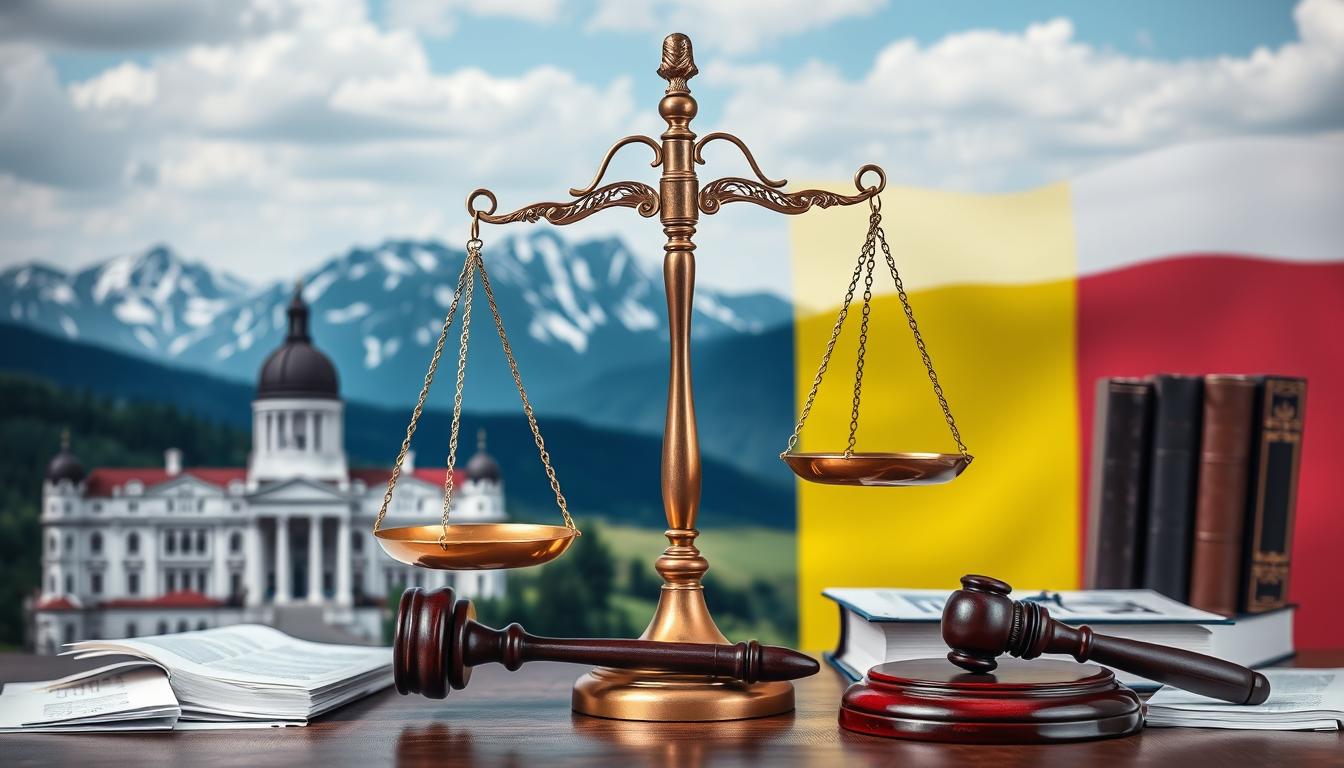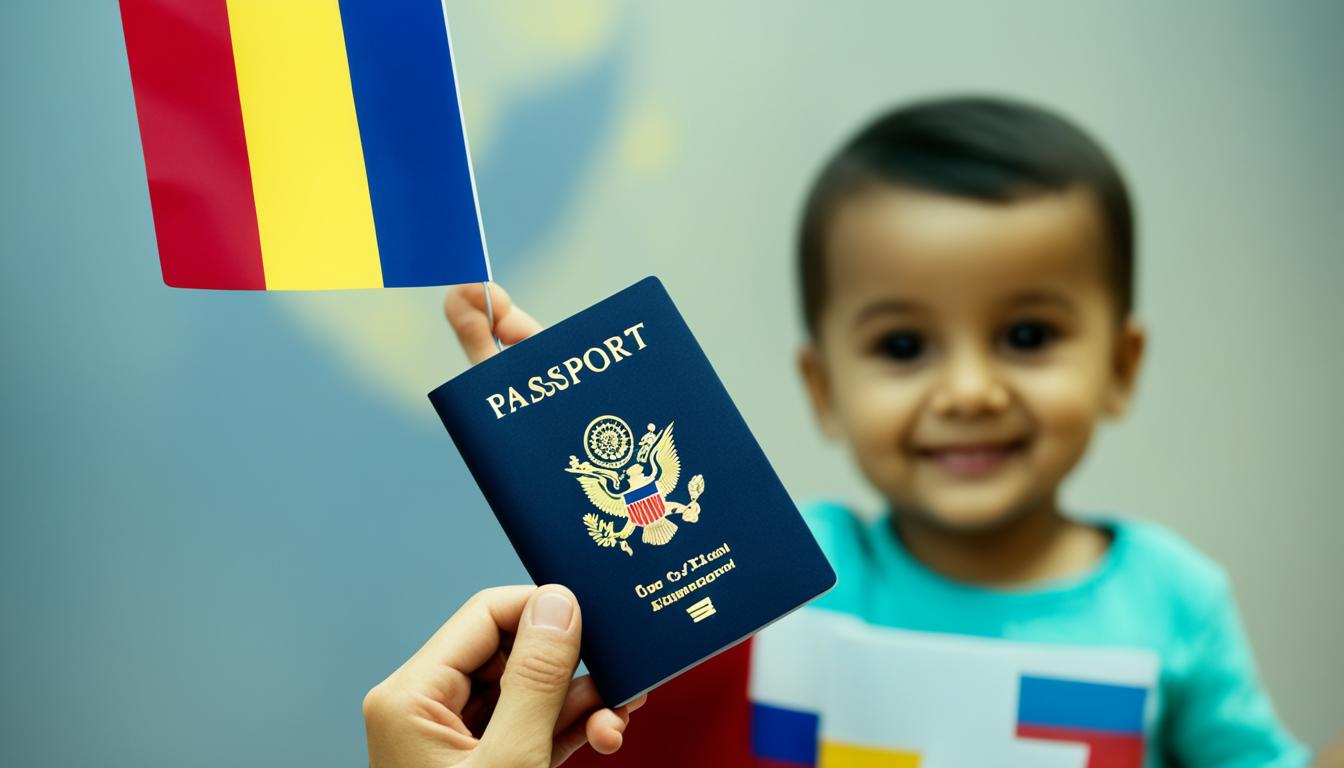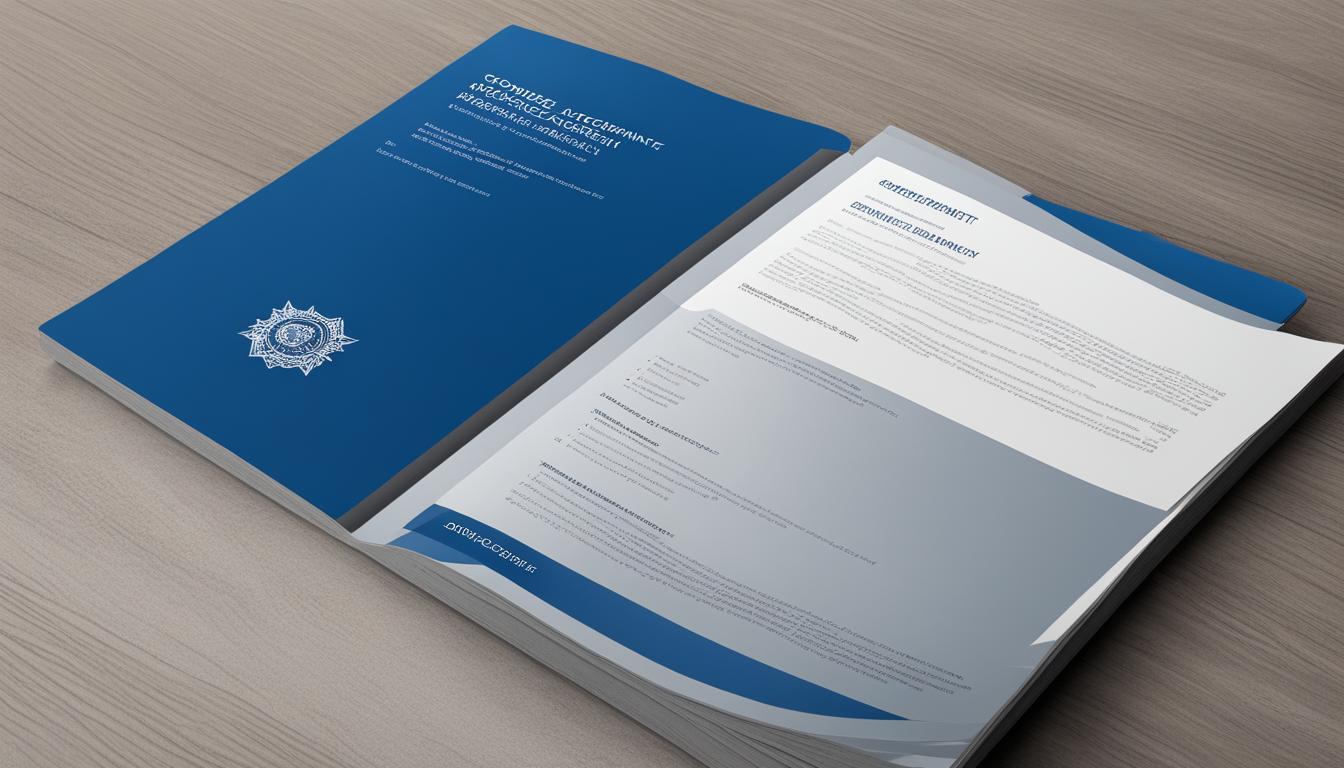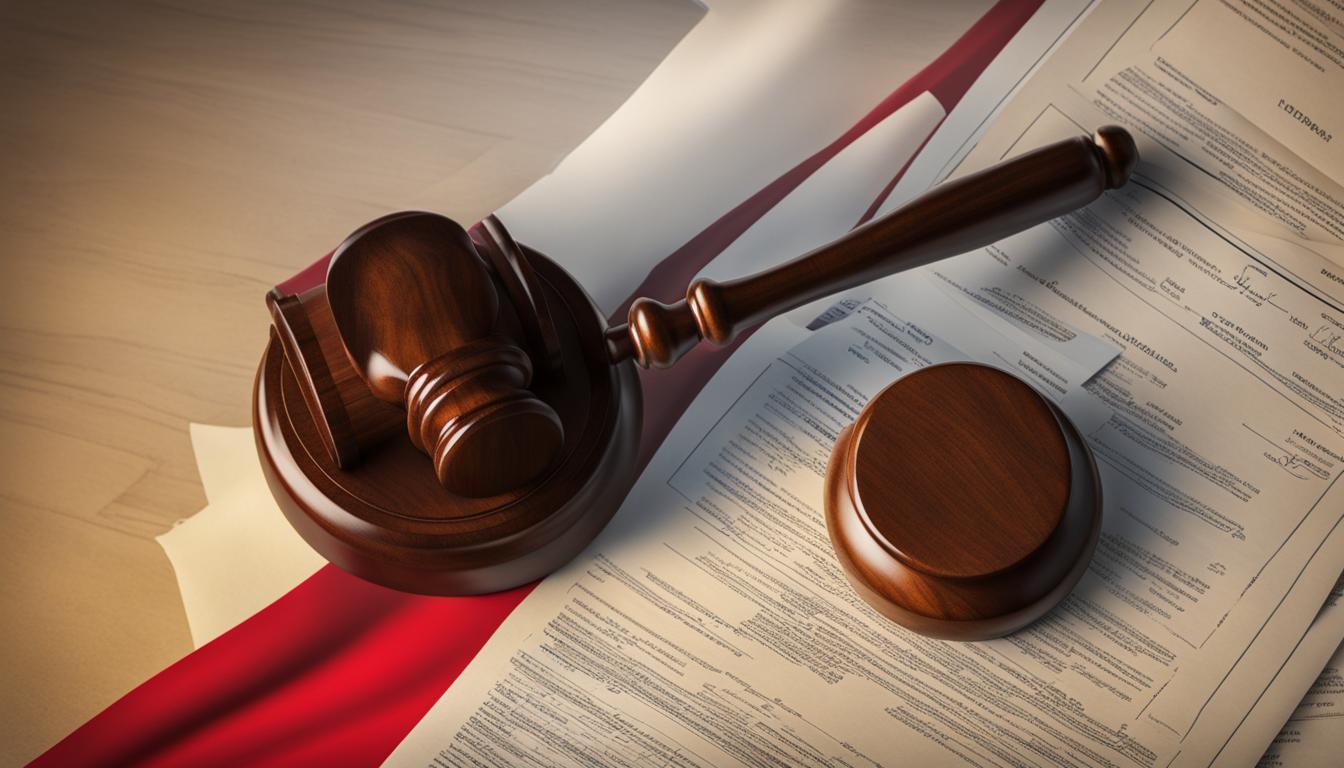Simplified Cross-Border Debt Collection in Romania
Simplified Cross-Border Debt Collection in Romania
Are you having trouble getting debts back from clients or customers in Romania?
The process of debt collection in Romania can seem hard.
But, with the right help, it can be easier.
A professional cross-border debt lawyer in Bucharest can guide you through it.
For expert advice, reach out to a lawyer in Romania at (004) 0765366887.
They know the local laws and can help you.
A cross-border debt collection Romanian Law Office offers support and guidance every step of the way.
Key Takeaways
- Debt collection in Romania can be a complex process, but it can be simplified with the right guidance.
- A professional cross-border debt collection agency can help you navigate the complexities of debt collection in Romania.
- International debt recovery services can provide you with the necessary support and guidance throughout the process.
- A cross-border debt collection agency can help you recover your debts and provide you with the necessary support and guidance.
- The average timeline for the payment ordinance procedure in Romania is approximately 3 months.
- The stamp duty for filing a payment ordinance is RON 200 (approximately EUR 40).
- Courts are required to issue a decision within 45 days from the filing of the application for a payment ordinance.
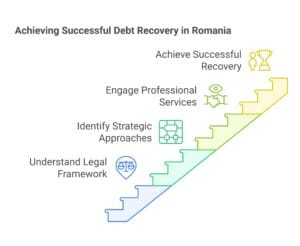
Understanding Cross-Border Debt Collection in Romania
Dealing with debt collection in Romania requires knowing the laws and process.
Debt recovery across countries can be tricky.
But, understanding local laws helps you manage the process better.
In Romania, debts can’t be collected after 3 years, as debtors can claim “prescription.”
But, you can stop or reset this time limit.
This includes written confirmations from debtors, starting legal actions, or making partial payments.
Romania’s debt collection process is governed by many laws.
Often, debts are settled outside of court.
Success rates for enforcing judgments in Romania vary.
To boost success chances, get help from specialized lawyers in Romania, Bucharest.
Knowing Romania’s debt laws and process can help in recovering debts across countries.
| Debt Collection Stage | Success Rate | Cost |
|---|---|---|
| Out-of-court settlement | 70% | 5-10% of claim amount |
| Legal proceedings | 50% | 10-15% of claim amount |
Legal Framework for International Debt Recovery
Understanding the legal framework is key when dealing with cross-border debt recovery.
In Romania, the rules are complex but manageable with the right help.
A debt collection law firm in Europe can offer valuable support.
The European Union’s rules greatly influence debt recovery laws.
For example, the European small claims procedure helps recover debts up to EUR 2,000 across EU countries.
A Romanian debt collection company can assist in using this procedure to efficiently collect debts.
Important aspects of Romania’s debt recovery laws include:
- The new Romanian Civil Procedure Code, which updated debt collection rules;
- The option to start debt recovery through common law trial, Ordinance of Payment, or a special low-value claim procedure;
- The need to know about stamp duty and court fees for different recovery methods.
In summary, Romania’s debt recovery laws are detailed, and businesses need expert help.
By understanding these laws and working with a Romanian debt collection Law Office, businesses can increase their chances of successful debt recovery.
| Debt Recovery Procedure | Applicable Debt Value | Court Fees |
|---|---|---|
| Common Law Trial | No limit | Variable |
| Ordinance of Payment | No limit | RON 200 |
| Small Claims Procedure | Less than RON 10,000 | Lower than Common Law Trial |
The Romanian Debt Collection Process
Understanding the debt collection process in Romania is key to efficiently recover unpaid debts.
The process includes several steps, from initial assessment to court proceedings.
It’s important to follow the debt collection laws in Romania to recover debts.
The first step is an initial assessment of the debt.
The creditor checks if the debt is valid and if the debtor can pay.
This step helps decide the best way to recover the debt.
Sometimes, pre-legal steps can help without going to court.
Key Steps in the Debt Collection Process
- Initial assessment and documentation: gathering all relevant information about the debt and the debtor.
- Pre-legal collection procedures: attempting to recover the debt through negotiation and communication with the debtor.
- Court proceedings: taking the case to court if the pre-legal procedures are unsuccessful.
The debt collection laws in Romania guide the recovery process.
The European small claims procedure makes cross-border debt recovery easier within the EU.
By following the process and laws, creditors can improve their chances of successful debt recovery.
Strategic Approaches to Cross-Border Debt Recovery
When dealing with international debt recovery, it’s key to use smart strategies.
This boosts the chances of getting the debt back.
Using cross-border debt recovery services helps tackle the challenges of collecting debts abroad.
A debt collection Law Firm in Romania with international experience is very helpful.
Important strategies include amicable debt recovery and using technology.
Amicable recovery saves money and keeps relationships good.
Knowing the local laws and culture of the debtor’s country is also vital.
In Romania, for example, there are rules for small claims and common law procedures.
Creditors can join insolvency proceedings by registering assets and liabilities.
With the right strategies and a good debt collection agency, businesses can recover debts more effectively.
Enforcement of Foreign Judgments in Romania
Understanding how to enforce foreign judgments in Romania is key for businesses.
This involves recognizing and executing foreign court decisions.
Romania, being part of the European Union, follows EU rules like Regulation (EU) No 1215/2012.
This makes it easier to enforce judgments across the EU.
For foreign judgments to be recognized in Romania, there must be a mutual agreement.
The Romanian Civil Procedure Code handles judgments from outside the EU.
A court review checks if the judgment was fair and follows Romanian laws.
Key Considerations for Enforcement
- Reciprocity between Romania and the issuing country;
- Compliance with Romanian public policy;
- Procedural fairness in the foreign judgment;
- Execution procedures, including asset seizure and garnishment of wages.
Enforcing foreign judgments in Romania can help recover debts efficiently.
But, it’s important to know the legal steps well.
Getting legal help in Romania and having all the right documents is vital.
This way, businesses can handle debt collection across borders better and avoid risks.
Out-of-Court Settlement Options
Dealing with debt collection in Romania can be easier without going to court.
Debt settlement options like negotiation and mediation can help.
These methods aim to solve disputes peacefully.
They also reduce the need for long and expensive legal battles.
In Romania, creditors can enforce debts outside of court for non-real estate assets.
This includes things like equipment or inventory.
The process is usually quicker, taking less than a month, making it more efficient.
Out-of-court settlements have many benefits.
They are cheaper, faster, and help keep business relationships strong.
Using negotiation and mediation, creditors can get their money back while keeping things friendly.
This way, they avoid the high costs and time of court cases.
For the best results, creditors should work with a professional debt collection agency or lawyer.
These experts know how to handle the process and talk to debtors.
They help find agreements that work for everyone.
This way, creditors can get their money back quickly and keep their business relationships intact.
Professional Debt Collection Services in Romania
Dealing with unpaid debts in Romania requires professional help.
Debt collection lawyers offer efficient recovery solutions.
They have local knowledge and can handle international cases too.
Professional services bring expertise in local laws and a network of professionals.
They can tackle complex cases.
When using professional debt collection in Romania, consider these points:
* The time limit for business debts is 5 years.
* Late payments can hurt cash flow, affecting growth.
* Romanian companies must file annual accounts within 120 to 150 days after the financial year ends.
Using these services can boost debt recovery chances in Romania.
Preventive Measures for International Business
When you take your business global, it’s key to avoid debt collection problems.
You need to manage risks well.
Debt collection prevention and risk management are vital.
They help keep your cash flow smooth and your business safe.
To prevent debt issues, check your clients’ credit thoroughly.
Make sure payment terms are clear.
Keep an eye on what you’re owed.
Working with a local partner or a debt collection lawyer can also help.
It’s also important to know the local laws and rules.
For example, Romania’s Small Claims Procedure can help you get debts back quickly.
By being proactive, you can protect your business and aim for long-term success.
| Country | Debt Recovery Rate |
|---|---|
| Romania | Approximately 40% |
By using these preventive steps and staying informed, you can lower debt collection risks.
This way, your international business can thrive.
Time Limitations and Statutory Considerations
When dealing with debt collection in Romania, knowing the time limits and laws is key.
You must act quickly to increase your chances of getting the debt back.
In Romania, most debts have a three-year limit to be collected.
It’s vital to start the process within this time to get the best results.
There are other laws you need to know about too.
For example, in Romania, you can only get back legal costs if you’ve already paid them.
The court fees can also be different from what you’re used to.
Many debt collection agencies work in Romania, helping creditors with lots of debts.
Some important things to remember about debt collection in Romania include:
- Time limitations for debt collection: taking action within the three-year statute of limitations is key for success;
- Statutory considerations: knowing the legal framework and costs is essential;
- Documentation requirements: having all the right documents can make the recovery process smoother.
By understanding the time limits and laws for debt collection in Romania, you can act fast to recover your debts.
Knowing the specific rules in Romania is important to get the best outcome.
Technology and Modern Collection Methods
Technology is changing debt collection a lot. New methods are making it faster and better.
Tools like artificial intelligence and data analytics help a lot.
In Romania, digital banking is getting popular.
Now, 60% of banking services are online. This makes talking to creditors and debtors easier and safer.
Modern ways like mobile reminders and push notifications help too.
They make it more likely for people to pay back on time.
Some interesting facts about digital banking in Romania are:
- 70% of Romanians use contactless bank cards;
- 65% of Romanians access banking services through mobile banking apps;
- 53% of Romanians utilize internet banking services.
Technology in debt collection is growing fast.
The global market for debt collection software is expected to double by 2026.
We’ll see even more new ways to make debt recovery better.
Conclusion: Securing Your Cross-Border Debt Recovery in Romania
When dealing with cross-border debt recovery in Romania, a strategic plan is key.
You need to understand the local laws and best practices.
This approach helps in successfully recovering debts.
Romanian law offers several ways for creditors to act.
From early collection efforts to court actions, there are options.
Working with legal experts who know the Romanian legal system well is very helpful.
Also, teaming up with top debt collection agencies in Romania can boost your success rate.
It’s important to watch out for time limits, document needs, and legal rules.
By focusing on these, you can increase your chances of success.
This ensures you get your cross-border debt back in Romania.
FAQ
What is the legal framework for cross-border debt collection in Romania?
Romania’s laws for collecting debts from other countries are complex.
It’s important for businesses to understand these laws to collect debts well.
What are the common challenges in cross-border debt collection in Romania?
Collecting debts across borders in Romania can be tough.
Language and cultural differences, legal system variations, and finding debtors are big challenges.
What is the Romanian debt collection process like?
The process in Romania starts with an initial check.
Then, there are steps before court and possible court actions.
Knowing this helps businesses get their money back.
How can businesses enforce foreign judgments in Romania?
To enforce judgments from other countries in Romania, you need to get the foreign decision recognized.
Then, you follow execution steps, keeping in mind time and cost.
It’s a complex process.
What are the out-of-court settlement options for debt collection in Romania?
Businesses can try mediation or negotiation to solve debt issues without court.
These methods can be effective in Romania.
How can professional debt collection services in Romania assist businesses?
Professional services in Romania offer local knowledge and help with the legal side.
They also find cost-effective ways to help businesses get their money back.
What are the preventive measures for international businesses to avoid debt collection issues?
To avoid debt problems, businesses can take steps like preventing debt and managing risks.
These actions help keep debt issues away.
What are the time limitations and statutory considerations for debt collection in Romania?
Businesses must know the time limits and what documents are needed for debt collection in Romania.
This knowledge helps in recovering debts efficiently.
How can technology and modern collection methods help with cross-border debt recovery in Romania?
Technology and new methods, like AI and data analytics, can make debt recovery in Romania better.
They help businesses get their money back more easily and well.

